Gardening enthusiasts are always on the lookout for ways to boost the health and vitality of their plants. One of the most effective approaches is the use of organic all-purpose fertilizers. This blog explores how these powerful, natural amendments can breathe new life into your garden. From improving soil structure and fertility to encouraging robust plant growth and blooming, organic fertilizers offer myriad benefits without the harsh chemicals found in synthetic options. Whether you’re a seasoned gardener or just starting out, understanding the role of organic all-purpose fertilizers can help you create a thriving, sustainable garden.
What Are the Benefits of Using Organic Fertilizer?
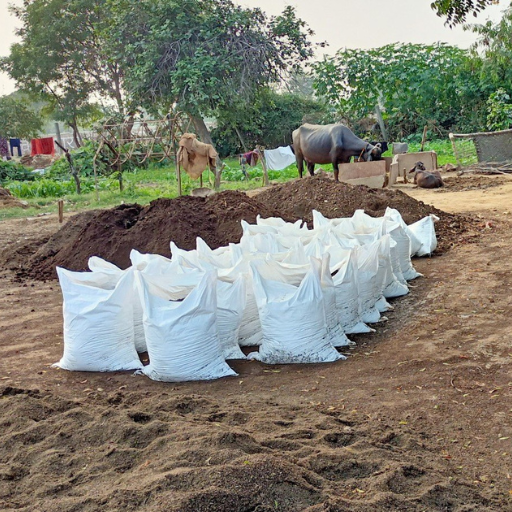
Why Organic Plant Food is Better for the Growth of Plants
The use of organic plant food guarantees better growth since it comes with the essential nutrients slowly-releasing form that enhances their absorption while minimizing chances of over-fertilization. Additionally, organic fertilizers improve soil health by promoting the activity of beneficial microorganisms that break down organic matter, leading to improved soil structure and fertility. An environment which is suitable for root development is created making plants more vigorous and tough. On top of this, avoiding synthetic chemicals in growing organically also reduces the threat to beneficial insects thereby creating a balanced ecosystem.
How Organic Nutrients Improve Your Soil
Organic nutrients are very important in promoting healthy soils. They promote the growth of beneficial microorganisms that help decompose organic matter, releasing vital nutrients gradually for plant uptake. This process improves soil structure, making it more friable and better able to retain moisture and nutrients. Also, organic matter increases the water-holding capacity of soils thus reducing drought stress on plants. Furthermore, they help maintain the integrity of soil biodiversity eliminating the need for any chemical inputs as they encourage earthworms’ presence among other organisms that facilitate aeration and nutrient cycling in soils. It’s hence upon these reasons that there has been seen an increase in gardening practices focusing on building up healthy soils rather than just sticking to one method such as adding chemical fertilizers which only add small percentage to the total nitrogen concentration needed by crops.
Understanding The Long-term Effects Of Organic Fertilizer
Using organic fertilizer has numerous long time benefits on both plants and soils respectively. Organic fertilizers enhance soil fertility by increasing its organic matter content thus enhancing microbial activity responsible for nutrient circulation within it .As time goes by,the stucture of a soil develops making it more erosion resistant and less affected by compression forces.Unlike chemical additives ,which result into leaching away or degradation of soil ,organic options take longer period before giving out all required elements thus protecting them from excessive doses. Furthermore, the improved soil health supports better root development and plant growth, while also fostering a diverse and healthy ecosystem. The reduced dependency on chemical inputs means less pollutants in the environment thereby contributing to long term sustainability and ecological balance.
How to Choose the Best Organic All Purpose Fertilizer
What to look for in all-purpose fertilizer
Balanced Nutrient Ratio: This means choosing fertilizers with balanced N-P-K ratio (Nitrogen, Phosphorus, Potassium), such as 5-5-5 or 10-10-10. In this way, the plants get essential nutrients necessary for their growth and development.
- Slow Release Formula: The ideal organic all-purpose fertilizer should have a slow release formula. As such, it ensures that nutrients are supplied uniformly over time thereby preventing leaching of nutrients and reducing the risk of over fertilization.
- High Organic Matter Content: Choose fertilizers with a high percentage of organic matter like compost, bone meal or fish emulsion. It is good to include organic matter in soil as it improves structure, retention of water and microbial activity.
- Micronutrients: Ensure that the fertilizer has micronutrients that are important like calcium, magnesium, iron and zinc. These trace elements are vital for plant health and can correct deficiencies which might reduce growth.
- Soil Health Enhancers: Other than that you need something that enhances root development like mycorrhizae, beneficial bacteria and humic acids among others. Consequently root development is supported besides improvement in nutrient uptake.
- Sustainability: Opt for fertilizers certified as organic and without synthetic chemicals or GMOs. By being sustainable they ensure better plants’ nutrition together with environmental sustainability.
- Ease of Use: Consider the type of fertilizer i.e whether it’s granular, liquid or pelletized. Choose one suitable for your gardening practice and easy to use
All these features should be part of your all-purpose fertilizer to give your garden an inclusive nutrient profile while supporting soil health and encouraging sustainable gardening practices.
Understanding the 4-4-4 Nutrient Ratio in Organic Matter
The notion behind 4-4-4 nutrient ratio found in organic matter refers to having equal amounts three primary nutrients required by plants; nitrogen (N), phosphorous (P) and potassium (K). Each of these nutrients is present in equal amounts as indicated by the ratio 4-4-4.
- Nitrogen (N): It is vital for promoting healthy foliage and overall vegetative growth
- Phosphorous (P): Essential for root development, flowering, and fruiting
- Potassium (K): It helps plants to be protected against diseases, manage water among others.
A 4-4-4 ratio can be widely used on many plants which makes it a good choice for an all-purpose organic fertilizer. This approach ensures that essential nutrients are available throughout the plant’s life cycle without making frequent changes.
The Role of Microorganisms and Biochar in Organic Fertilizer
Microorganisms and biochar are important components that improve the effectiveness of organic fertilizers. Such microorganisms include bacteria, fungi and actinomycetes which decompose organic matter thereby increasing availability of essential nutrients to plants. These beneficial microbes not only aid in nutrient cycling but also improve soil structure, enhance soil aeration, and increase the soil’s water-holding capacity. They form symbiotic relationships with plant roots helping them to take up nutrients more efficiently thus promoting overall plant health.
Biochar is a type of charcoal produced from plant materials that increases microbial activity within soils when applied as a soil amendment. Its porous structure provides an ideal habitat for microorganisms thus increasing their survival or proliferation in soil. Additionally, biochar enhances soil fertility by retaining nutrients and moisture consequently reducing the need for chemical fertilizers or irrigation. Also carbon sequestration takes place when biochar is put into use hence lower greenhouse gas emission levels resulting to environmental sustainability.
In developing organic fertilizers, the interaction between biochar and microorganisms yields a productive outcome that results in better plants, enhanced soil quality, and ecological farming.
Can Organic Fertilizer Be Used for All Garden Plants?
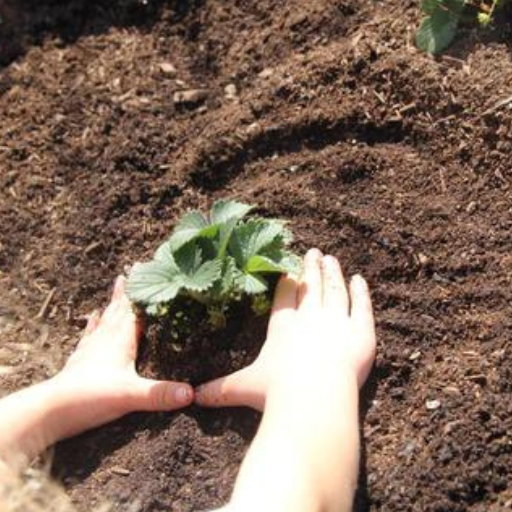
Ideal Plant Food for Beds and Pots
Organic fertilizers work well with both garden beds and potted plants because they provide essential nutrients without the risks associated with chemical substitutes. For garden beds, composted manure, worm castings, and well-rotted leaf litter are excellent choices. These materials enrich the soil, improve its structure, and support beneficial microbial activity.
For potted plants, mixing compost with organic liquid fertilizers that are balanced (such as fish emulsion or seaweed extract) in addition to slow-release granules ensures a regular supply of nutrients. To avoid water-logging the potting mix must be well drained so that roots can grow properly.
In conclusion, selecting the right type of organic fertilizer based on the specific needs of garden beds or potted plants can promote healthy growth, vibrant blooms, and bountiful harvests while maintaining ecological balance.
Fertilization Tips for Diverse Types of Shrub and Lawn
Different types of shrubs should be fertilized according to their own needs. Organic fertilizers such as compost bone meal or fish emulsion can be used on shrubs by adding them around the base early spring again mid-summer. The soil should be moist before applying fertilizer; water it abundantly after application to ensure nutrients reach down deep into the root zone.
Use a balanced organic lawn fertilizer which has high nitrogen content when taking care of your lawn. Apply this fertilizer in early spring once grass starts growing then repeat the process every 6-8 weeks during the growing season. Mow your lawn at a moderate height; remove any thatch buildup from it and aerate soil to enhance nutrient absorption. Deeply watered lawns less frequently encourage deep root growth.
Following these principles will keep your plant life healthy thereby maintaining eco-conscious yards for both shrubs and lawns.
Special Considerations for Certified Organic Gardens
For certified organic gardens all aspects of farming including soil preparation and pest control have to align with the principles of organic farming. Such rules include use of organic seeds and planting stocks whenever possible, prohibition of synthetic fertilizers, pesticides, and genetically modified organisms (GMOs). This natural gardening method ensures a fertile soil through practices like crop rotation, green manure cover crops and composting as well as controls pests.
In addition, maintaining an organic certification requires meticulous record keeping and regular inspections to verify compliance with organic practices. Compliance is demonstrated through recording farmers’ organic pest control strategies, inputs and farming methods. Finally certified organic gardens provide homes for beneficial insects and wild animals that help in promoting biodiversity and maintaining ecological balance within the garden ecosystem.
By following these principles and keeping good records, certified organic gardeners can ensure their operations meet the rigorous standards set forth by organic certification bodies.
How to Apply Organic All-Purpose Fertilizer Effectively
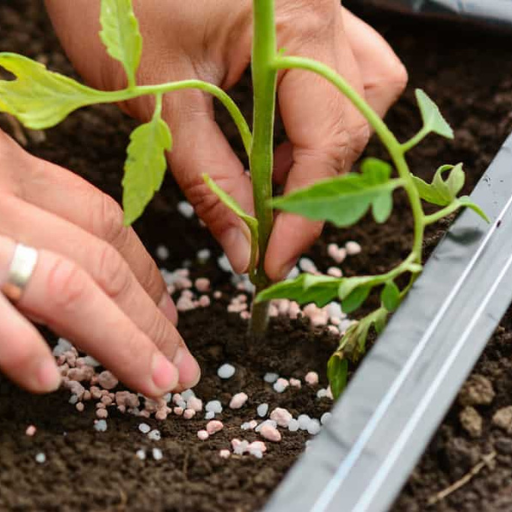
Dry Versus Liquid: Picking the Best Formulate for You
The choice between dry and liquid organic all-purpose fertilizers relies on your specific needs, wants and goals in gardening.
Dry Fertilizers:
Usually slow-release and excellent for long-term soil health, dry fertilizers are usually in granules or powders which can be either worked into the soil at planting time or top-dressed. The primary advantage of dry fertilizer is being able to build up the structure of soil and provide nutrients over extended periods of time. They are also cheaper than liquid fertilizers, thus they have a longer shelf life.
Liquid Fertilizers:
On the other hand, liquid fertilizers offer a more immediate nutrient boost, making them perfect for quick fixes or feeding during the growing season. These are diluted with water then applied directly to the soil or foliage so that plants can take them up quickly. Liquid fertilizers work particularly well in container gardens; foliar feeding as well as prompt revitalization of nutrient-starved plants among others. However, they often require more frequent applications and can be more costly in the long run.
When choosing between dry and liquid fertilizers consider your specific garden’s needs, what kind of plants you grow and your future goal s as a gardener. A combination of both forms often produces better results under balanced fertilizer program.
Measuring Right Amount: Per Gallon of Soil
To measure out the right quantity of fertilizer per gallon of soil requires precision as well as considering individual plant requirements. Usually with dry fertilizers it is common to recommend about 1-2 tablespoons per gallon of soil. This will ensure that there is a consistent supply of nutrients without burning by excessive levels which cause wilted leaves and scorched flowers or fruit buds . On average such a solution should contain 1 teaspoon per gallon if we talk about liquid fertilizer then it’s typical dilution rate is one teaspoon per gallon water—this substance can be poured on the ground or sprayed on leaves as well, ensuring even application so that plants can easily absorb nutrients. Always seek guidance from the manufacturer’s instructions, and make changes in line with your specific plants and soil conditions.
Is Organic Fertilizer Suitable for Indoor Plants?
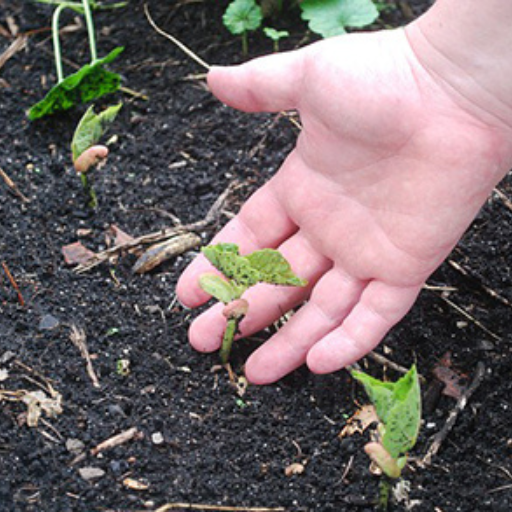
Benefits of Using an Organic Plant Food for Houseplants
The use of organic plant food for houseplants has a lot of advantages that lead to the production of healthier, stronger plants. Firstly, organic fertilizers supply nutrients gradually and this guarantees consistent supply of essential minerals over some time without risking acid burn. This slowness in nutrient release improves soil structure as well as stimulating beneficial microbial activity hence encouraging healthy root development. Organic fertilizers on the other hand are environmentally friendly and do not pose danger to harmful chemical runoff therefore they may be used in safely in both indoor environment and our planet respectively. Through choosing organic plant food I don’t just look after my houseplants but also take a sustainable decision that supports long-term soil health.
How All-Purpose Fertilizer Can Revitalize Your Indoor Garden
All-purpose fertilizer can greatly revamp my indoor garden by providing a balanced mixture of vital nutrients needed by various plants. Typically such fertilizers have nitrogen, phosphorus, potassium which are important for promoting healthy growth, lively foliage and strong root systems. By using all-purpose fertilizer according to the prescribed rate on the package, I make sure that my houseplants get supplied with necessary nutrients so that they can grow well. In fact, it simplifies my plant care routine while improving over all health and appearance of my indoor garden at once.
Frequently Asked Questions (FAQs)
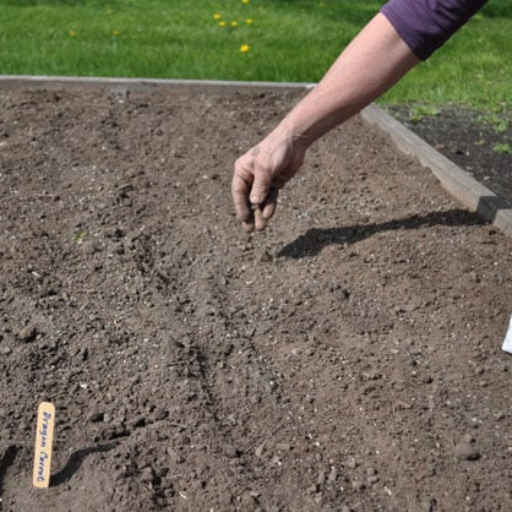
Q: How do I apply all-purpose organic fertilizer in my garden?
A: Mix the fertilizer into the soil’s top 3-6 inches with a spade or fork to apply it. This will help nutrients be distributed evenly across the growing area so that plants can efficiently absorb them.
Q: Will I see fast-acting results with all-purpose organic fertilizer?
A: Many all-purpose organic fertilizers are intended to give fast-acting results, rapidly releasing nutrients in the soil and making plants show improvement within a short time frame.
Q: Can all-purpose organic fertilizer help improve my soil quality?
A: Yes, by putting back essential nutrients and improving soil structure, and therefore facilitating better absorption of nutrients and water, all-purpose organic fertilizers enhance soil quality.
Q: How much area can one package cover?
A: In general, coverage depends on product and garden requirements but usually ranges from a few hundred square feet per package. Be sure to review specific package instructions for coverage details.
Q: How can I find the best all-purpose organic fertilizer for my garden needs?
A: To offer you the best shopping experience ever, kindly visit our shop at our website. Every nutrient needed for strong growth is contained in each of our various blends of fertilizers meant to improve your plant’s health.
Q: Are there any special instructions for using this site to purchase my fertilizer?
A: While browsing through this site as you look for your ideal universal purpose organic fertilizer for gardening make sure that you are aware of our terms and use of cookies which are meant to provide you with seamless navigation through our platform ensuring that you shop here without any form of hindrance.






